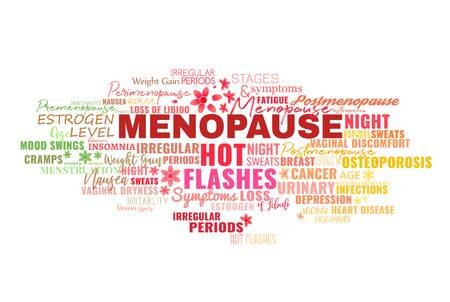Hot flushes? Sweaty sheets? "Am I going mad?!" ... Maybe it's the perimenopause!
Perimenopause , really ?
Hormones have affected me from the minute I started my first period at 14 . I went green in the classroom from the cramping pains and was sick pretty much every time my period was due up until I had a child. The number of times I spent Christmas day rolling around on the floor in the bathroom were numerous.
On top of that I was one of 3-8 % of women who suffered from PMDD , basically chronic PMS syndrome, so for one week of every month for all of my life I would not be able to cope. Symptoms included severe depression and anxiety , mood swings , irritability and intense anger towards others (usually loved ones). It affected my relationships and looking back my ability to stick with jobs and with partners. All this is something that I only became aware of in my early thirties . Childbirth helped with the pains but the PMDD was still there.
The the next phase of hormonal surges hits women in their 40’s when perimenopause kicks in . We tend to be aware of what menopause is but very little is talked about the perimenopause which is the long phase leading up to a women’s periods stopping usually at around the age of 52 in UK. it can last for up to 12 years. Actual menopause is defined as the day you have stopped having periods for 12 months. After this is called postmenopause. I started having perimenopausal symptoms when I was 47, of course I thought I was too young.
So what can you expect from the perimenopause? well not necessarily what you would associate with menopause. Sleepless nights , inability to concentrate on even the simplest of tasks and associated brain-fog spring to mind but what about the other less known symptoms
Anxiety , panic attacks and depression can all be signs of perimenopause and these vary between women but some women suffer so badly that the symptoms become debilitating. These symptoms can become so bad that they affect work , relationships and emotional well-being in general.
Intense fatigue can be related to poor sleeping patterns and this affects many women with endless nights of looking at the ceiling. Restless nights and bouts of waking are very common.
Worsening premenstrual syndrome (PMS/PMT) is very common with symptoms like food craving , irritability and bloating and mood swings. All made worse by dipping progesterone levels.
Lack of libido ( reduced or no sex drive ) happens with a lack of hormones including a lack of testosterone.
Hot flushes and night sweats can be an embarrassing physical symptom that are the most common symptom of menopause. Some women wake ”drenched” in sweat having to change the sheets and nightclothes. This can disrupt sleep and have an effect on partners too. Hot flushes can come from nowhere and sweep up through the body from the toes to the head. This can be particularly distressing for women at work and in social situations. Along with this can come heart palpitations, dizziness and intense sweating.
Irregular periods are due to the body shutting down productively . You may experience lighter and less regular periods or heavier periods on the run up to the menopause.
Brain fog and concentrations issues can be extremely frustrating . Small tasks that were never an issue before can become a problem.
Vaginal dryness ( Vaginal atrophy) happens when the walls of the vagina become thinner through declining oestrogen levels and this lack of oestrogen can make the natural lubrication of the vagina lessen.
Urinary complications such as recurrent urinary infections due to lack of oestrogen causing the walls of the bladder to be less elastic.
Joint pains again due to a lack of oestrogen can make joints feel achy and painful.
Oh what a joy! These symptoms do vary from women to women but most will suffer from at least some of the symptoms. Oestrogen affects many systems in the body ; skin, bones, brain, heart and vagina so low levels can take affect on any of these.
How is the menopause diagnosed?
If you are 45 years old or over and are experiencing symptoms and have irregular periods you don’t need a blood test to diagnose the menopause, although it may be more difficult to know about your periods if you have a coil containing progesterone or are on the contraceptive pill.
If you are below 45 then you may need to have tests to determine your FSH levels, if this is higher than it should be then you are probably menopausal.
Menopause is a completely natural phase of every women’s life but some conditions can bring on an early menopause . Some of these include;
Hysterectomy
Cancer treatments
Auto-immune disease
Chromosome defects
When I started getting the symptoms I thought I was going mad because I had never heard of perimenopause and thought I was simply too young. Mine were less physical and more psychological and at that time I had no knowledge that linked the two together.
I hope this article has been informative and you can now look out for the symptoms or if you are experiencing symptoms already I would recommend going to see your GP. I know GP guidance on the menopause can vary hugely depending on the practice but don’t be fobbed off. Get a second opinion if need be. I hear stories of women coming away from their doctors confused and upset by the lack of knowledge but others , like mine, lucky enough to have a brilliant understanding GP.
I will write another blog soon on managing your menopause but for now if you need further information there is lots of help out there.
Gallery Block
This is an example. To display your Instagram posts, double-click here to add an account or select an existing connected account.
Vulputate Commodo Ligula
Elit Condimentum
Aenean eu leo Quam
Cursus Amet
Pellentesque Risus Ridiculus
Porta
Etiam Ultricies
Vulputate Commodo Ligula
Elit Condimentum
Aenean eu leo Quam
Cursus Amet
Pellentesque Risus Ridiculus
#block-yui_3_17_2_1_1565795913255_71841 .sqs-gallery-block-grid .sqs-gallery-design-grid { margin-right: -20px; }#block-yui_3_17_2_1_1565795913255_71841 .sqs-gallery-block-grid .sqs-gallery-design-grid-slide .margin-wrapper { margin-right: 20px; margin-bottom: 20px; }










